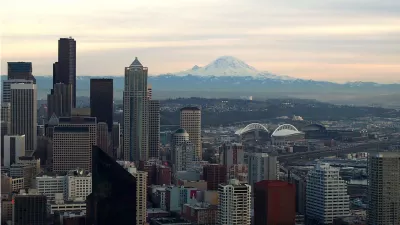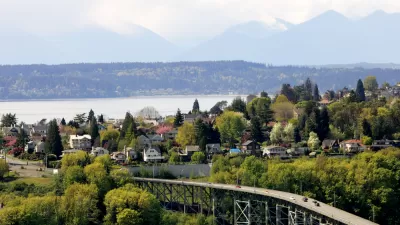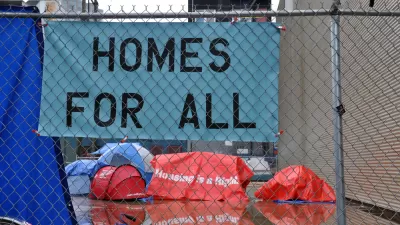You might have read that headline and wondered why other wealthy tech companies aren't stepping up to make contributions to their home towns. There is a lot to understand about this news before jumping to conclusions.

Vernal Coleman and Mike Rosenberg broke the news for the Seattle Times that Microsoft is offering $500 million to help tackle the affordable housing shortage in the city of Seattle and in surrounding suburbs.
Most of the money will be aimed at increasing housing options for low- and middle-income workers — workers who “teach our kids in schools, and put out the fires in our houses and keep us alive in the hospital,” said Microsoft President Brad Smith — at a time when they’re being priced out of Seattle and parts of the Eastside, and when the vast majority of new buildings target wealthier renters.
The sum is lofty. The state of Washington's Housing Trust Fund, for instance, totals $100 million.
Importantly, the company will not be awarding $500 million in grants. The money will actually be split three ways, as reported by Coleman and Rosenberg:
- "Microsoft will loan $225 million at below-market interest rates to help developers facing high land and construction costs build and preserve 'workforce housing' on the Eastside, where the company has 50,000 workers and is planning for more."
- "Another $250 million will go toward market-rate loans for construction of affordable housing across the Puget Sound region for people making up to 60 percent of the local median income ($48,150 for a two-person household)."
- "The remaining $25 million will be donated to services for the region’s low-income and homeless residents."
The big figure and the acuteness of the national housing crisis launched the news of Microsoft's new housing program onto national media sites as well.
Emily Badger picked up the news for The New York Times, framing the news as the result of a failure of government and the market.
“It really represents something almost unprecedented,” said Matthew Gordon Lasner, an associate professor of urban studies and planning at Hunter College. “What we’re seeing Microsoft do is in effect privately assume the role that historically the federal government and the states have played.”
The federal government is retreating from a role in the housing market, spending only a third of what it did in the 1970s on housing programs. Funding to repair existing public housing has been cut in half in the last 15 years, reports Badger.
Dylan Mathews also picked up the news for Vox, providing an "explainer" of how the $500 million program will work, what it will and won't do, and how people have reacted to the news so far.
FULL STORY: Microsoft pledges $500 million to tackle housing crisis in Seattle, Eastside

Planetizen Federal Action Tracker
A weekly monitor of how Trump’s orders and actions are impacting planners and planning in America.

Congressman Proposes Bill to Rename DC Metro “Trump Train”
The Make Autorail Great Again Act would withhold federal funding to the system until the Washington Metropolitan Area Transit Authority (WMATA), rebrands as the Washington Metropolitan Authority for Greater Access (WMAGA).

DARTSpace Platform Streamlines Dallas TOD Application Process
The Dallas transit agency hopes a shorter permitting timeline will boost transit-oriented development around rail stations.

Supreme Court Ruling in Pipeline Case Guts Federal Environmental Law
The decision limits the scope of a federal law that mandates extensive environmental impact reviews of energy, infrastructure, and transportation projects.

Texas State Bills to Defund Dallas Transit Die
DART would have seen a 30% service cut, $230M annual losses had the bills survived.

Bikeshare for the Win: Team Pedals to London Cricket Match, Beats Rivals Stuck in Traffic
While their opponents sat in gridlock, England's national cricket team hopped Lime bikes, riding to a 3-0 victory.
Urban Design for Planners 1: Software Tools
This six-course series explores essential urban design concepts using open source software and equips planners with the tools they need to participate fully in the urban design process.
Planning for Universal Design
Learn the tools for implementing Universal Design in planning regulations.
Roanoke Valley-Alleghany Regional Commission
City of Mt Shasta
City of Camden Redevelopment Agency
City of Astoria
Transportation Research & Education Center (TREC) at Portland State University
US High Speed Rail Association
City of Camden Redevelopment Agency
Municipality of Princeton (NJ)




























